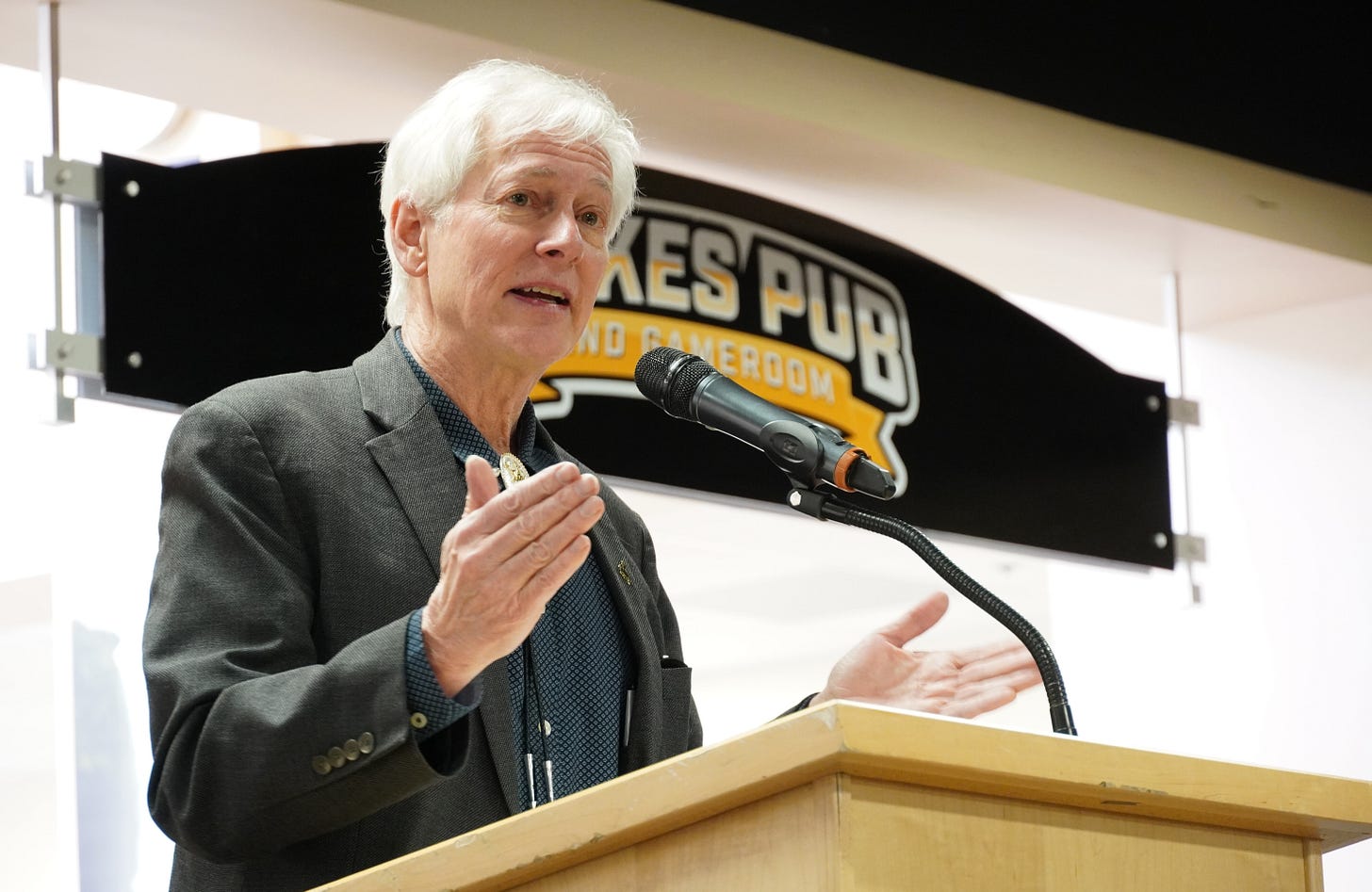At UW, faculty voice their anger, donors pause their support and trustees launch a committee
The Laramie Reporter’s Jeff Victor explained the evolving situation on campus during Wyoming Public Radio’s latest episode of Open Spaces.

The University of Wyoming had an eventful week.
The abrupt removal of a popular dean earlier this month sparked an outcry from donors and faculty, which in turn inspired responses from President Ed Seidel and the Board of Trustees.
The Laramie Reporter’s Jeff Victor recounted these developments for a statewide audience Friday on Wyoming Public Radio.
You can listen to the complete interview here, or catch it during the noon re-airing of Open Spaces by tuning into your local public radio station Sunday.
On April 2, UW announced the demotion of Dean Cameron Wright from his position at the helm of the College of Engineering and Applied Sciences. UW provided little in the way of an explanation for the sudden ouster, but suggested and later clarified it was related to the dean’s alleged failures to progress toward long-standing education and research goals.
However, internal memos and emails obtained by the Laramie Reporter show Wright had objected to a planned transfer of $500,000 from his own unit to another, leading state lawmakers to worry, months before Wright’s removal, that the dean could face retaliation for his actions. Laramie Rep. Karlee Provenza (HD-45) and Sen. Chris Rothfuss (SD-10) penned a letter warning UW to back off the transfer and to refrain from punishing Wright.
“I certainly didn’t know that he was going to be fired,” Provenza told the Reporter last week, as Wright’s fate was coming into focus. “I had concerns at that time … it just seemed like there was an underlying tone to this process that I was uncomfortable with.”
Whatever the reason for Wright’s removal, UW has not been forthcoming with details. The speed with which he was removed and the “lack of transparency” surrounding this and other high-level ousters scared both donors and faculty.
On Monday, the Faculty Senate gathered to consider a vote of no confidence, ultimately deciding 43-11 to voice their disapproval of UW President Seidel’s leadership. Hours before, Seidel had hosted a public town hall seeking to stave off that vote and to promise he would recommit to shared governance and open communication.
The following morning, the UW trustees met in private for more than 90 minutes, ultimately reconvening in public session to announce they would be launching a new committee dedicated to shared governance.
Faculty are cautiously optimistic.
“The Board of Trustees came down pretty much where we were hoping they would come down,” said political science professor Gregg Cawley, a member of the Faculty Senate’s executive committee. “I think it’s a very good first step, and we’ll still have to see how that plays out.”
Heading into the trustees’ meeting Tuesday morning, there was speculation across campus that Seidel could quit or be fired. But Cawley said that was never the senate’s intention, even as it convened for a vote of no confidence.
“Those of us on the executive committee who started this ruckus made it very clear that that was not our intention,” Cawley said. “What we really wanted to do is just make it clear that we all needed to sit down and talk about how we can have better communication on campus.”
In the statement announcing the new shared governance committee, the board thanked the Faculty Senate for its “hard work and thoughtful input.”
“The board takes these matters seriously,” the statement reads. “A strong, transparent and inclusive approach to governance is essential — not just for the health of the university, but for the trust placed in us by the people of Wyoming and by the thousands of alumni who continue to support and champion this institution.”
Questions remain about whether the committee will actually improve shared governance, and whether UW’s response thus far will assuage the donors now pausing or pulling their support.




I listened to your report on Open Spaces and was curious why you completely left any mention of Gabrielle Allen, Seidel's partner and the would-be beneficiary of the $500,000 that Wright declined to share, out of your report?
I appreciate having a clear and concise description of these transactions on campus and your article was really easy to understand and follow. Not only that, but it contained all of the vital aspects and I appreciate your thoroughness and journalistic excellence.